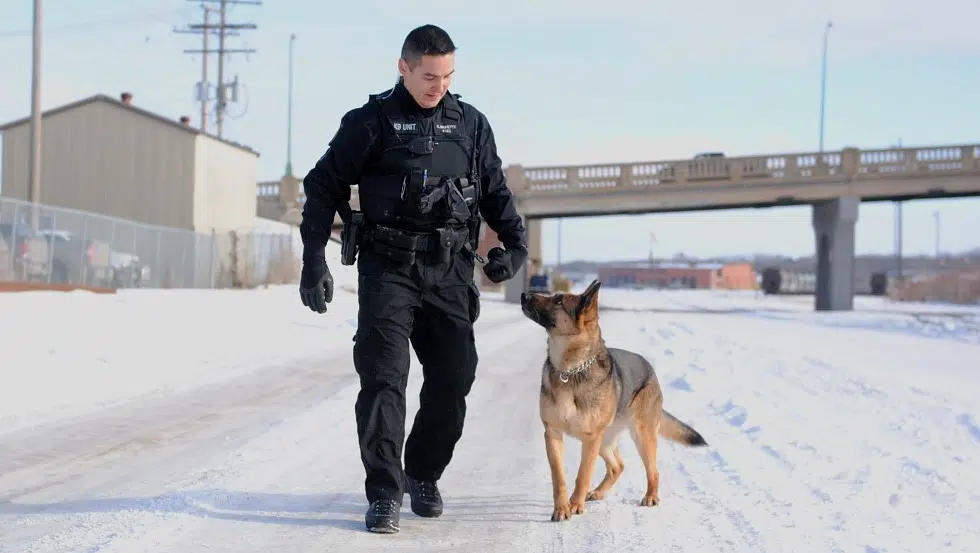
Police pooches valuable partners
Febee and Daxa don’t talk a lot with their partners Constables Mike Chow and Kelsey Bighetty but when the paws hit the pavement, the two pooches don’t hold back.
The two German Shepherds are part of the Prince Albert Police Service’s K9 unit and tackle the more serious situations like tracking down suspects and finding drugs. While many dogs have come and gone in the 40 years since the police service started the K9 unit, Febee and Daxa have the distinction of being the first female canines to serve.
Chow, who has been with the police service for nine years, said the animals have no fear when they are called into action. He said while they are a tool to fight crime, he sees Febee as much more than that.
“She’s my partner,” Chow said. “She comes to work with me every day when I’m working. They are a tool but to me she’s more my partner. Every time we use them, they are a huge benefit.”


